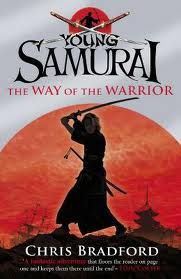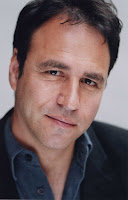'This is a classic.' Reading Matters
"It is not easy to cross from your world into this... but there are places where they touch."
On a gloomy day in Manchester, Roland, Helen, Nicholas and David are lured into a ruined church, where the fabric of time and place is weak enough to draw them into the twilight world of Elidor.
It is a place almost destroyed by the fear and darkness, and the children are charged with guarding its Treasures while a way is sought to save the dying land.
But soon the safety of this world is pit in danger as the evil forces of Elidor find a path through to reclaim the Treasures for themselves...
The power of it lies in the awful build-up of suspense.
Manchester in 1965 is a place of bombsites and slum clearance programmes. Mooching around with a football one cold afternoon, the four Watson children roam inside a Victorian red-brick church which is about to be demolished. They can't find their ball, which was carelessly kicked over the wall, and one by one the children disappear as they go to look for it. When only Roland is left, he finds that the heavy iron-handled door which the mysterious lame fiddler urges him to open, is a portal into the troubled land of Elidor.
Elidor is a wild and empty kingdom on the point of being devoured by the forces of evil. Of four castles in the landscape, three have been lost to evil and the fourth is failing. The lame fiddler of Manchester is the lame King Malebron of Elidor and he charges Roland to help him to regain the three treasures which are held in the Mound of Vandwy. Roland is able to do this by visualizing a door in the mound and walking in. Inside he is reunited with his brothers and sister who had, each in turn, tried to help Malebron but failed. They locate the three treasures: a cauldron, a sword and a stone and bear them outside to the waiting Malebron.
Malebron is in desperate straits and asks the children to take all four treasures of Elidor, including his own spear, back to their world to hide them from the powers of evil. In this way Elidor cannot totally succumb.
Back in Manchester, the exquisite treasures of Elidor take the form of nothing more valuable than a broken teacup, a stone and a piece of iron railing but the children dutifully bury them in their back garden and try to think no more about them.
Unfortunately, Roland's big mistake was in visualizing his own front door when he sought an opening into the Mound of Vandwy. The treasures act as a beacon for the forces of evil from Elidor and they soon come come round peeping through the letter box.
One of the most memorable and powerful pieces of writing I have ever come across occurs in this book. The buried treasures of Elidor generate some kind of powerful energy which is capable of being picked up in Elidor, but it also interferes with all the electrical goods in the house and surrounding area, and even the car. In the silence of the winter evening, after the television and radio pack up, the family listen with growing disquiet as first the electric razor upstairs starts itself, then the electric mixer and the washing machine in the kitchen. Nothing can be done to stop them since they are not plugged in.
The children must return the treasures to Elidor where they belong, but they must also help Malebron defeat the forces of evil by fulfilling a prophecy.
About the Author
Alan Garner was born and still lives in Cheshire, an area which has had a profound effect on his writing and provided the seed of many ideas worked out in his books.
His fourth book, 'The Owl Service' brought Alan Garner to everyone's attention.
It won two important literary prizes - The Guardian Award and the Carnegie Medal - and was made into a serial by Granada Television.
It has established itself as a classic and Alan Garner as a writer of great distinction.
Despite an OBE for services to children's literature, and the fact that books like
The Weirdstone of Brisingamen and
Elidor are the kind of absorbing childhood fantasy that reverberates into adulthood, to view Garner as a children's writer is reductive. He puts it best when he says: "I do not write for children, but for myself. Adolescents read my books. By adolescence, I mean an arbitrary age somewhere between 10 and 18." It's an in-between group, and Garner's books are likewise poised between passion and detachment, intensity and alienation, blunt modernity and ancient myth.
His style is stripped-down, yet shares dialect and linguistic relish with much older works. "The language of my childhood and of my native culture is, technically, North-west Mercian Middle English," he has said - the language of the Gawain poet. The layers of local history and a precise sense of place are paramount in his work.
He has been writing for over 40 years; each book is a lengthy project as he pours so much research into it (learning Welsh for
The Owl Service, for example). Eventually, "I feel a jolt within me and I hear quite without any understanding; I hear words, which I put down". Not all his work is fantasy - the
Stone Quartet follows four generations of Garner's family from the mid-19th century to the second world war.
Strandloper, his first novel for adults, was a difficult, almost experimental, evocation of Aboriginal culture. In his 2003 adult book,
Thursbitch, which grew out of his fascination with a mysterious tombstone on a Pennine track, he is back on home ground and all the better for it.
Want to know why Alan Garner writes? Click here to find out...
 'Gennifer Choldenko is a bright light in ... teenage fiction, and Al Capone Does My Shirts is one of her best.' The Independent
'Gennifer Choldenko is a bright light in ... teenage fiction, and Al Capone Does My Shirts is one of her best.' The Independent

































